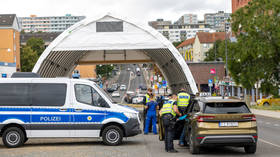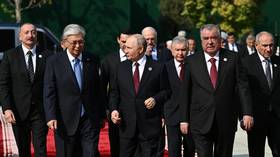Germany’s border crackdown can only last ‘a few more weeks’ – police

Germany’s new border crackdown can only be sustained for “a few more weeks,” the country’s police union has warned, citing mounting pressure on officers tasked with enforcing the policy.
The warning comes two weeks after the government introduced stricter border controls to curb the number of asylum seekers entering the country.
”We can only manage this because duty rosters have been adjusted, training for the units is currently on hold, and the reduction of overtime has been halted,” Andreas Rosskopf, chairman of the Federal Police and Customs division of the German Police Union, said. He warned that the controls can only be sustained “for a few more weeks.”
The measures represent a major shift in Germany’s migration stance and fulfill a key campaign promise of Chancellor Friedrich Merz, who vowed to tighten the immigration laws.
The May 7 order from Interior Minister Alexander Dobrindt bans asylum applications at all land borders, reversing former Chancellor Angela Merkel’s 2015 open-border policy. Exceptions are made for children, pregnant women, and other vulnerable groups. Up to 3,000 officers are being added to the 11,000 already stationed at Germany’s borders.
The 2015 policy defined Germany’s approach to refugees, while also drawing fierce political backlash, with critics calling it “disastrous.”
A week after the measures were announced, Dobrindt claimed that the number of rejections increased by almost a half. However, according to Der Spiegel, the number of asylum applications remained largely stable in the week after May 7.
As the EU’s largest economy, Germany has been the most popular destination for asylum seekers. According to official statistics, foreigners currently make up 17% of the country’s population.
Migration remains a polarizing issue, with local authorities often warning that the number of asylum seekers is straining their budgets.
The right-wing Alternative for Germany (AfD) party, which is known for its strong anti-immigration stance, was designated a “confirmed extremist entity” earlier this month by the domestic intelligence agency (BfV), which said its activities could threaten Germany’s democratic order. The designation was later suspended after legal appeals and public outcry.













